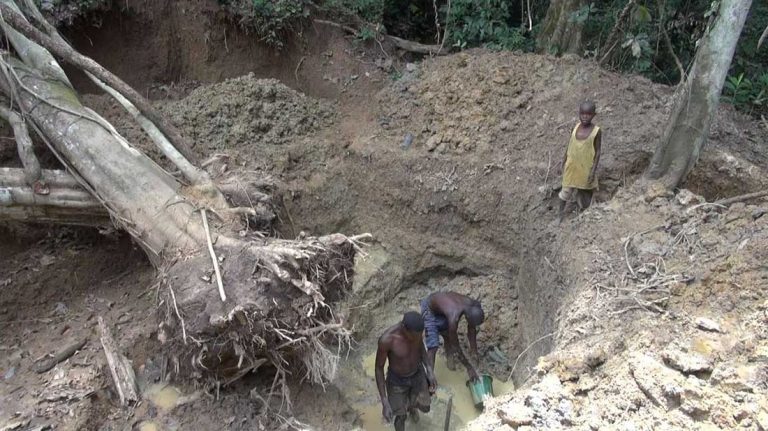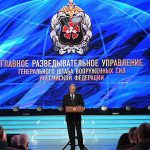During the Russia-Africa Summit held in October 2019 in Sochi, Russia, the Central African Republic President, Faustin-Archange Touadéra, stated that the Russian defense ministry and the Central African Republic (the CAR) were looking into possibilities to deploy a Russian military base on the republic’s territory. In August 2018 the parties signed an agreement on military cooperation envisioning the possibility to deploy the base. It is worth reminding that in January 2019 the CAR Defense Minister, Marie–Noëlle Koyara, announced the idea of the base deploy. Inparticular, she pointed out the need to expand the center of Berengo, the place where Russian instructors conduct training for local military specialists. At that time, as part of the center’s activity, the CAR’s 1300 military underwent training. Nevertheless, the Russians consider this military facility as the initial stage of military expansion in the republic rather than a ‘military base’. In the meantime Russia provides the CAR’s local military with small arms. Official Bangui asks Russians to sell more weapons and train new military groups at Russian universities – in particular, it is known that there is a request to train 4 pilots for military helicopters.
The expansion of military-technical cooperation between the parties blocks the UN arms embargo that was prolonged until January 2020. The CAR’s government is asking the international community to help lift it by citing the Russia-mediated peace agreement signed between the central government and 14 rebel groups in February 2019. The document shall guarantee the sustainable peace in the country where a bloody ethno-religious conflict, resulted in the CAR’s state institutions destroy, has lasted since 2013.
The fighters from former Séléka (Muslim bloc) and Anti-Balak (Christian bloc) alliances shall disarm and be gradually incorporated into the ranks of the CAR’s new army. In August 2018 the Russian businessman Yevgeny Prigozhine visited Khartoum where preliminary negotiations were held and participated in the negotiation process. It is him who is considered to be the creator of the Central African opposition association aimed at achieving reconciliation with the Touadéragovernment. The goal is to protect Prigozhin’s interests concentrating in the field of diamond mining in the CAR. On November 7, 2017, Sewa Security Services Company was registered in Bangui, the CAR’s capital; the company was tasked to ‘protect industrial facilities’. This structure is closely related to Lobaye Invest mining company founded in Bangui on October 25, 2017, and managed by Russian citizen Evgeny Khodotov. He is a former security official from St.Petersburg and is closely associated with Prigozhine including through ‘M-Finance’ structure engaged in gemstones mining. PMC ‘The Wagner Group’ ensures the personal security of President Touadéra although the latter definitely denies this fact.
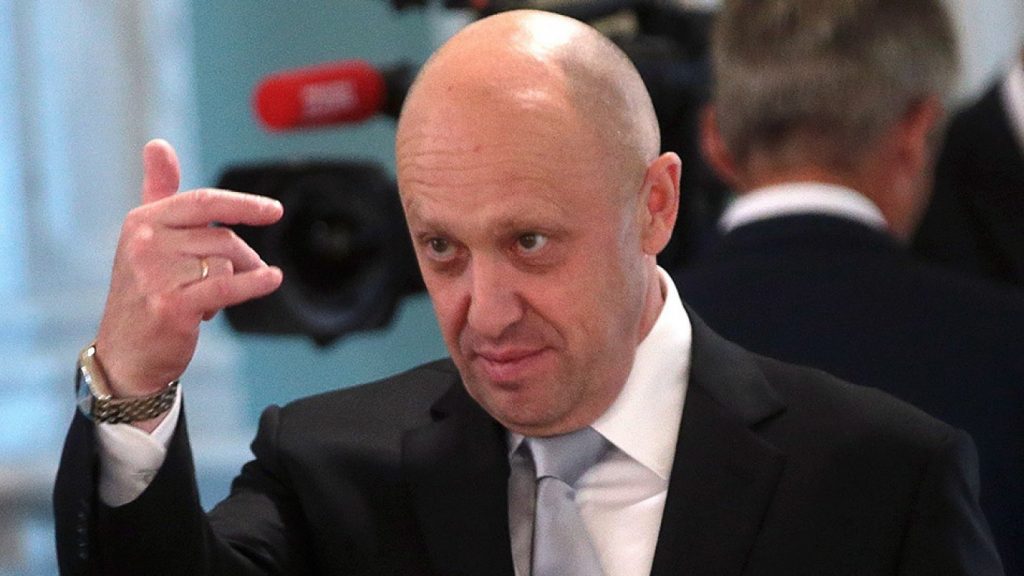
The Russians received from the government of President Tuadera the right to mine diamonds on an area of 4,000 square kilometers, and hope to attract their companies to their development. However, there is nobody to do it so far. The reason lies in the Kimberley Process against the CAR that imposes sanctions restricting greatly the access of the gemstones to the international market. The sanctions were introduced in 2013 and were precisely associated with the outbreak of the civil war in the republic during which a significant part of the diamond mines fell among various rebel groups. In 2016 the restrictions were partially lifted, but, nevertheless, now the CAR mines 39 thousand carats of diamonds per year which is slightly more than 10% of the volume mined before the restrictions have been introduced. The reason for this reality is that only the stones mined on the territory controlled by the central government are not referred to ‘bloody’, while the rest of the diamonds are smuggled onto the market. These unaccounted stones change their production origin, mostly for ‘Cameroon’, and are sold on the world market. At the same time, the stones documents either are forged or obtained for bribes.
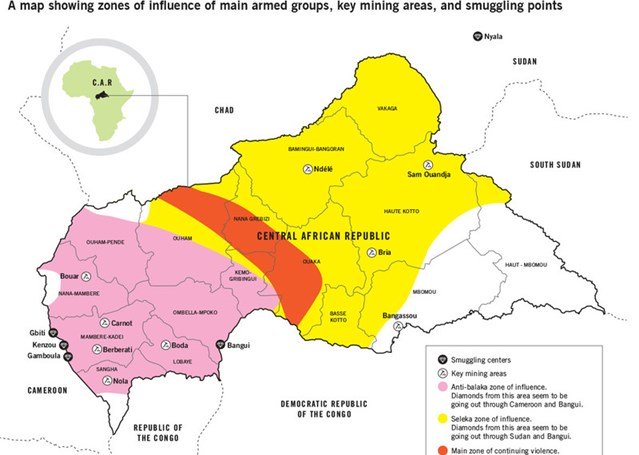
While Prigozhin’s firms can perform their business activity through shadow schemes, larger market players such as ‘Alrosa’ don’t want to put its reputation to hazard and be caught by selling ‘blood diamonds’. To this end, the Deputy Finance Minister of the Russian Federation and, concurrently, a member of ‘Alrosa’ supervisory board, Alexei Moiseev, voiced the initiative on the full legalization of diamond turnover in the CAR.
This plan is announced shortly before Russia’s chairmanship in the international organization ‘Kimberley Process’ that will last during 2020. The purpose of the structure is to certify gemstones and prevent selling the ‘blood diamonds’ from conflict zones on the market. Earlier, the Russian Federation stated that one of the tasks of its chairmanship would be to create equal conditions for all market participants, the organization controls 99% of diamond mining in the world. By ‘equal conditions’ in this case it is meant to lift all restrictions from the CAR.
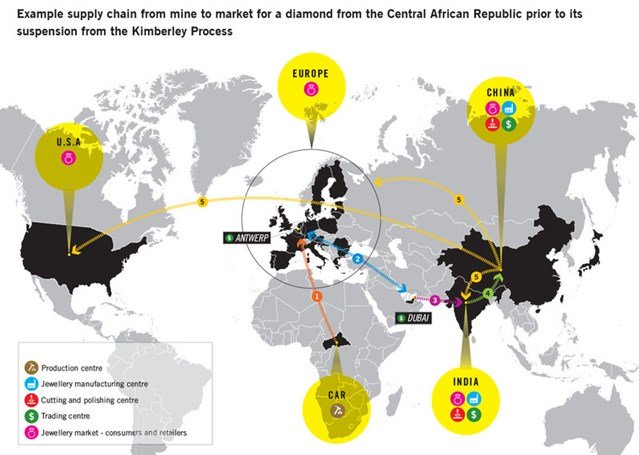
If the ‘diamond embargo’ is lifted, the Russians will receive a financial resource to expand their military presence in the CAR. In October 2019, Putin refused to discuss an idea of the military base deploy because of no resources for its establishment, and referred to the arms embargo as well. From now on, the future of Russian expansion in the very heart of Africa depends on whether the Khartoum peace agreement will be implemented. The process of its implementation is faced with great difficulties, and there is a risk that it may be failed just like the previous agreements signed in 2014, 2015 and 2017.


